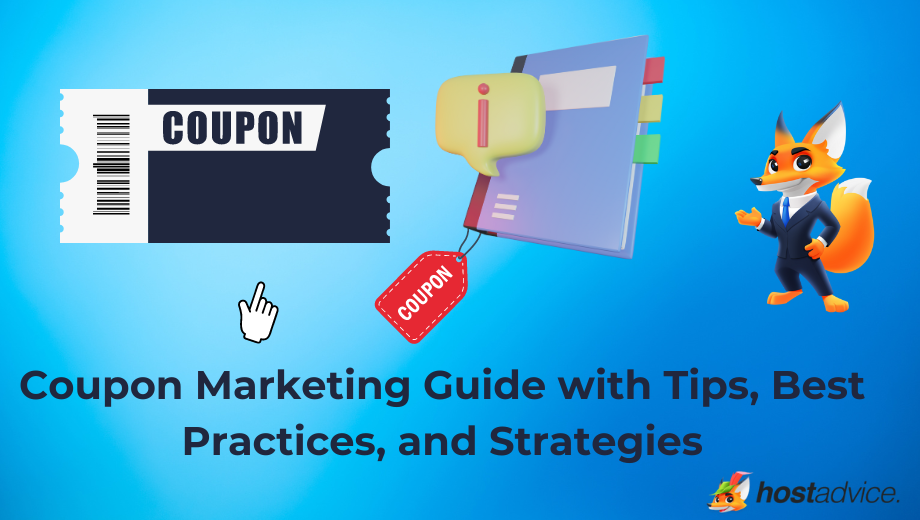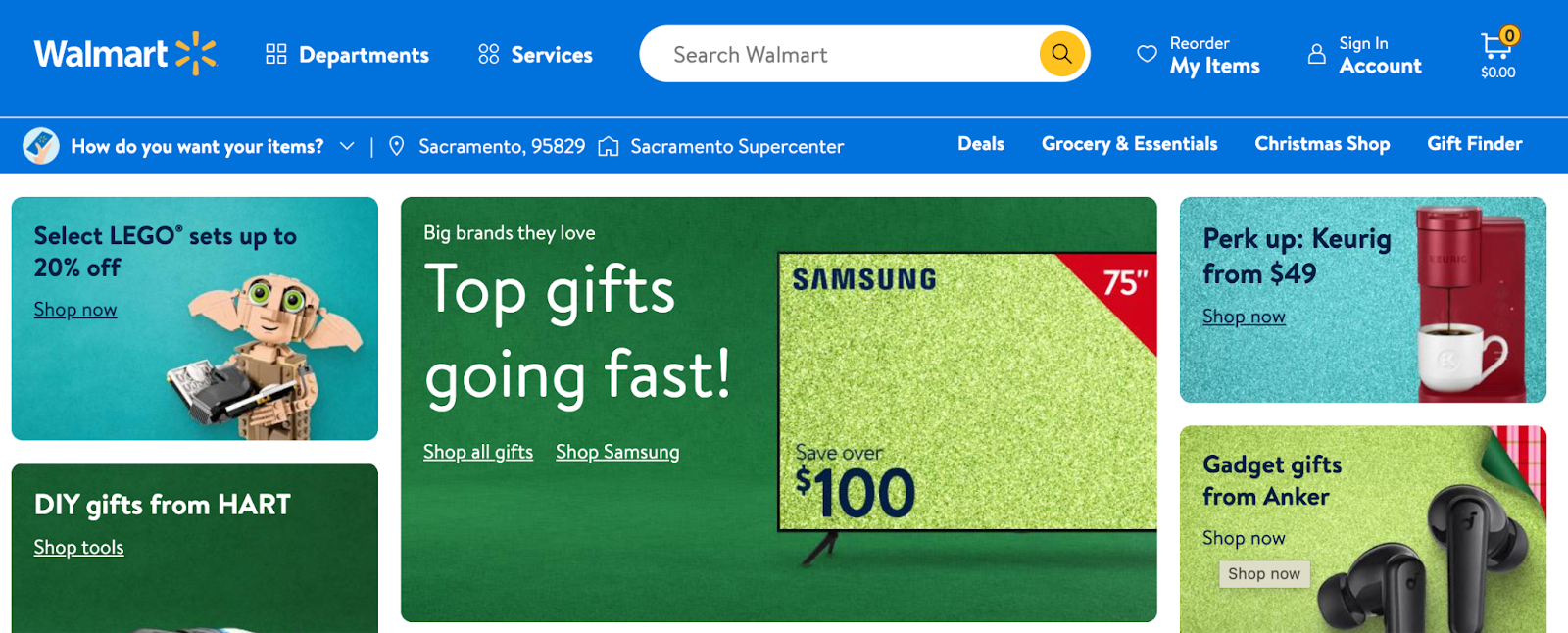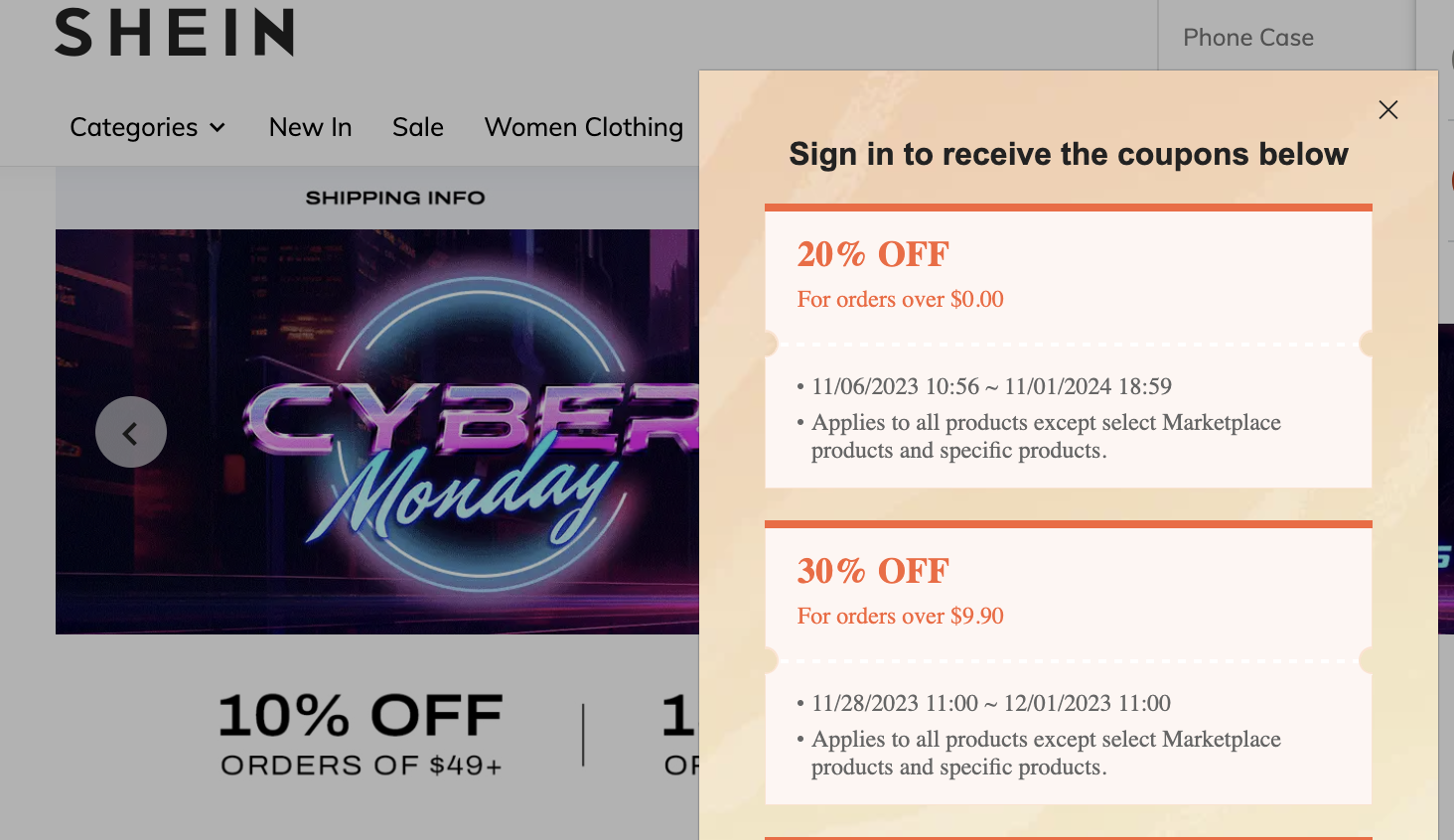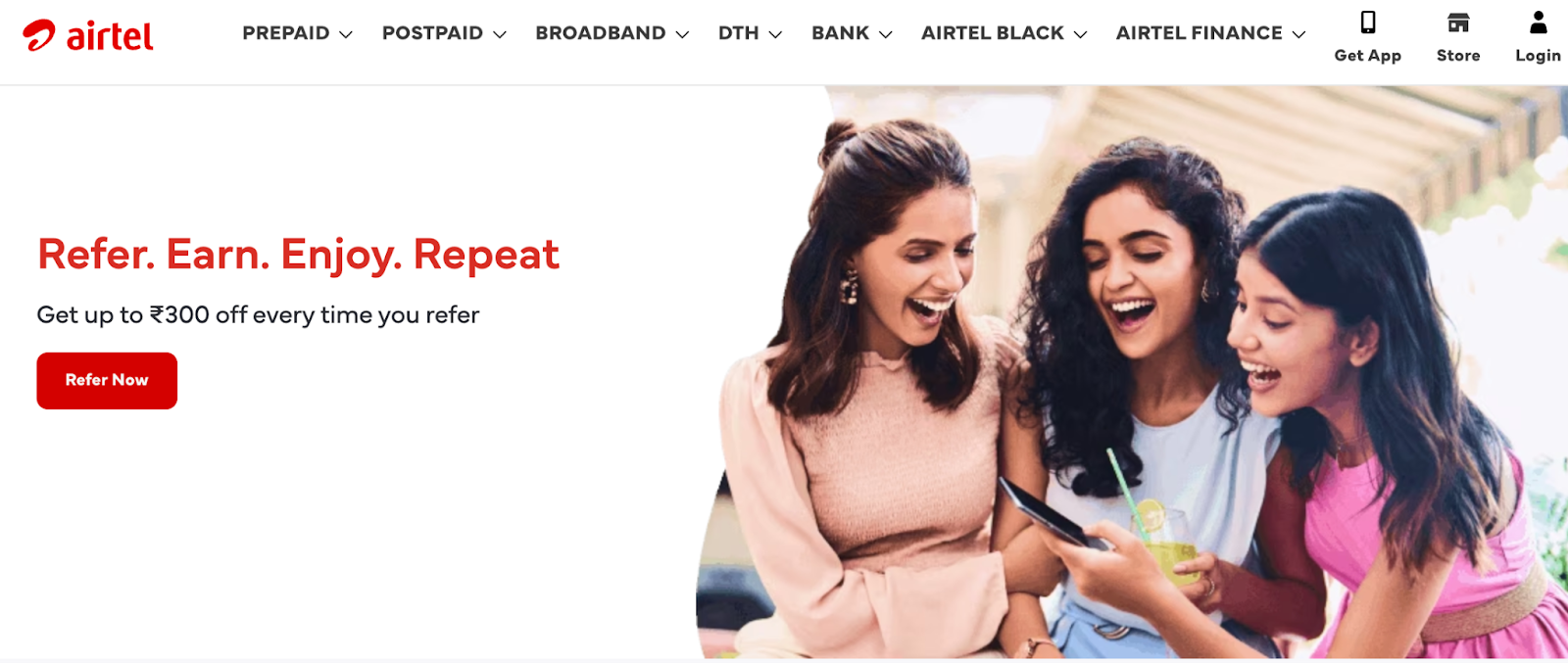
Coupon marketing is a powerful catalyst for customer engagement and brand loyalty in modern business. As businesses continually seek innovative avenues to attract and retain customers, the strategic use of coupons emerges as a tried-and-true method with multiple benefits.
Whether you are a marketer, business owner, or advertising professional, you can leverage coupons as a marketing tool. A coupon campaign helps build brand recognition if you have just opened a new store or want to introduce new products to your customers.
So, how does coupon marketing work? This comprehensive guide will explain why you should use this marketing strategy, how it works, the benefits, and the best practices.
- Coupon marketing is a strategy that businesses use to offer customer discounts
- Your business should incorporate coupon marketing campaigns to grow the customer base and increase sales
- Coupon marketing offers multiple benefits, including reduced cart abandonment rate, competitive edge, and improved sales
- As you create your coupon marketing strategies, you should segment your audience, communicate clearly, and use multiple channels
- Coupons are a good marketing tactic when launching a new product or service
What Is Coupon Marketing?
Coupon marketing is a dynamic strategy where businesses offer discounts or special deals to attract and retain customers. It is a powerful tool to drive sales, enhance brand visibility, and foster customer loyalty.
By providing consumers with enticing incentives, such as discounts, freebies, or exclusive offers, coupon marketing creates a win-win scenario, benefiting both businesses and their customer base. This approach is part of modern promotional tactics that yield tangible results in the competitive e-commerce landscape.
Today, businesses use both physical and digital coupons to attract more sales opportunities.
What Are Coupons?
Coupons are promotional tools that provide consumers with discounts, incentives, or special offers on products or services. Typically issued by businesses, these vouchers can be redeemed at the point of sale to avail of price reductions, buy-one-get-one-free deals, or other advantages.
Approximately 90% of consumers in the U.S. have admitted to using coupons before. This data shows how popular they are among customers.
Coupons come in various forms, including physical paper vouchers, digital codes, or online promotions. Their versatility makes them a widely embraced marketing tool, bridging the gap between businesses and consumers who want to save money.
Types of Coupons
If you want to develop a coupon marketing strategy, here are the different types of coupons you can offer your customers:
- Percentage discounts: These are the most common discount coupons. You can offer a percentage off the total purchase, enticing customers with immediate savings.
- Dollar amount discounts: You can also provide a fixed monetary reduction on the purchase, encouraging higher spending.
- BOGO (Buy One, Get One): This coupon grants customers an additional item for free or at a discounted rate when they purchase a specific product.
- Free shipping coupons: You can entice customers to make a purchase by eliminating shipping costs. This approach reduces cart abandonment and incentivizes online purchases.
- Limited-time offers: You can also create urgency by setting expiration dates, prompting swift customer action. For instance, this can be a holiday sale or discount that’s only available for two weeks.
- Gift card with purchase: To drive sales for a new product, you can offer a gift card with every purchase.
What Is a Coupon Code?
A coupon code, also known as a promo code or discount code, is an alphanumeric sequence or word that customers enter at the checkout when making online purchases. This code corresponds to a specific discount or promotional offer provided by the business.
Coupon codes are essential in e-commerce because they enable businesses to track the effectiveness of their promotions. Additionally, they also empower customers to enjoy exclusive discounts or perks associated with their online transactions.
How Does Coupon Marketing Work?
According to data by Statista, about two in ten consumers use coupons as a source of inspiration when purchasing new products. Therefore, coupon marketing operates by enticing customers with incentives, driving sales, and fostering brand loyalty.
Businesses create and distribute physical or digital coupons, offering discounts, freebies, or special deals. Customers can redeem these coupons during purchases to enjoy the associated benefits.
These coupon campaigns attract new customers and also encourage repeat business. If you have digital coupons, they can be tracked easily, enabling businesses to analyze the success of campaigns. Overall, coupon marketing establishes a mutually beneficial relationship, providing value for both businesses and consumers.
Why Should You Use Coupon Marketing?
Coupon marketing is a strategic approach for businesses seeking to boost sales, expand their customer base, and enhance brand loyalty. Coupons attract new customers, incentivize repeat purchases, and differentiate brands in a competitive market.
Whether you are using digital or traditional marketing in your business, you should offer coupons to create a positive customer experience. With the rise in digital payments, about 57% of consumers surveyed preferred digital coupons.
Therefore, consider using coupon marketing in your business to foster loyalty. Additionally, the measurable nature of coupon campaigns allows businesses to refine marketing strategies based on performance data, ensuring a cost-effective approach to customer acquisition and retention.
Benefits of Coupon Marketing
If your business is developing a coupon marketing strategy, here are the benefits you should expect:
Expanded Customer Base
Coupon marketing is an ideal tool to expand your customer base by attracting new consumers. Offering discounts or special deals creates an incentive for first-time buyers to engage with your products or services.
It’s also the perfect way to entice new customers who want to save money. Furthermore, coupon marketing provides an opportunity to showcase the value and quality of your offerings, potentially converting these one-time buyers into long-term patrons, thus fostering business growth.
Reduced Cart Abandonment Rates
Data shows that in 2022, a high number of online shopping orders were abandoned before the purchase was completed. If you are having this challenge, consider adopting coupon marketing. These coupon campaigns significantly reduce cart abandonment rates by addressing a common e-commerce challenge.
When customers reach the checkout page, they can apply a coupon code that often serves as the final encouragement to complete the purchase. The prospect of saving money provides a nudge, ensuring a smoother transaction process.
Track Your Success Rate
One of the key benefits of coupon marketing is the ability to track your success rate. Digital coupons, in particular, offer valuable data insights. By monitoring the redemption rates and analyzing customer behaviors, businesses can gauge the effectiveness of their coupon campaigns.
With this information, you can refine your marketing strategy and develop targeted coupon marketing plans that maximize return on investment.
Stay Competitive
Coupon marketing helps businesses stay competitive in dynamic markets. Offering discounts or exclusive deals keeps your brand relevant and enticing among competitors. Consumers are often drawn to businesses providing immediate value through coupons, fostering customer retention and acquisition.
With these campaigns, your business can stay on top of digital marketing trends and consumer expectations. This way, you get to adapt swiftly and stay competitive in the ever-evolving landscape of consumer preferences and purchasing behavior.
Improved Sales
Another benefit of coupon marketing is that it helps improve sales by incentivizing purchases. The appeal of discounts or special offers motivates customers to make buying decisions, boosting transaction volumes.
By strategically deploying coupons, businesses can stimulate demand, clear inventory, and drive revenue growth. This enhances short-term sales figures and contributes to long-term profitability, as satisfied customers are more likely to become repeat buyers.
Best Practices to Follow for Coupon Marketing Success
Consumers are constantly looking for coupons when shopping. In fact, statistics show that about half of U.S. shoppers searched for coupons online or received them through emails they got from businesses. Therefore, to meet customer demands, you need to tailor your coupon marketing campaign for success.
Here are the best practices to follow:
| Best Practices | Description |
| Targeted Audience Segmentation |
|
| Clear and Concise Communication |
|
| Strategic Timing |
|
| Multichannel Integration |
|
| Measure and Analyze |
|
Top 10 Essential Coupon Marketing Strategies
Before offering your customers coupons, you must develop a proper strategy. This approach ensures that your coupons are targeted and successful. So how can you achieve this? Here are the top coupon marketing strategies to keep in mind:
1. Set Goals For Your Coupon Campaign
Setting clear goals is the foundation of creating a coupon marketing strategy. You should define specific, measurable, and achievable objectives for your campaign. Whether it’s increasing sales, attracting new customers, or promoting a particular product, having a defined goal provides direction.
Regularly assess progress against these goals, adjusting strategies as needed. Clear objectives guide your campaign, ensuring it aligns with broader business objectives and delivers measurable results.
2. Choose the Best Distribution Channel
To boost your marketing efforts, you can offer digital or paper coupons. Because of this, you should choose the right channel. Selecting the right channel to offer coupons is pivotal for success.
Evaluate your target audience’s preferences and behavior to determine the most effective platform. Whether through email marketing, social media, or physical distribution, align your coupon distribution with where your audience is most active. This ensures optimal visibility and engagement, maximizing the impact of your coupon marketing efforts.
Here are some of the channels you should consider:
- Print coupons: While these coupons are a form of traditional marketing, they are still effective. You can distribute them in-store, through direct mail, or as part of physical advertising. They appeal to a broad audience and are easily redeemed in brick-and-mortar establishments.
- Email: Email coupons offer a direct and personalized approach. Businesses can target specific customer segments, track open rates, and provide unique codes for online or in-store use, fostering customer engagement and loyalty.
- Social media: These platforms allow businesses to reach a vast audience quickly. Shareable content and visually appealing promotions drive both online and offline traffic as users redeem coupons and share the deals with their networks. Data by Statista shows that 40% of surveyed consumers used Facebook in 2021 to look for promo codes and coupons. Here’s an example of digital coupons on the Walmart site.

Image source: Walmart
- SMS: These coupons provide immediate accessibility. Businesses can send exclusive discounts directly to customers’ phones, prompting quick and convenient redemption. SMS is particularly effective for time-sensitive promotions and engaging with a mobile-centric audience.
- Partner sites: You can also collaborate with partner sites or affiliate marketing platforms to extend coupon reach. By featuring discounts on external websites related to your industry, businesses tap into new audiences.
3. Incorporate Customer Feedback
As you change your digital marketing strategy, you need to integrate customer feedback. Your coupon marketing strategies need to be refined to boost customer satisfaction. Encourage feedback through surveys or social media.
Analyzing customer responses provides insights into coupon effectiveness, preferences, and areas for improvement. By actively incorporating customer input, businesses create more targeted and appealing promotions, enhancing overall success.
4. Limited Time Offers
Employing limited-time offers is a good strategy in coupon marketing. Creating a sense of urgency compels customers to act swiftly, driving immediate engagement. The fear of missing out motivates quicker decision-making, whether through flash sales or time-bound discounts.
Here’s an example from Shein. The coupons have a date to show how long the offers are available for:

Image source: Shein
This strategy not only stimulates sales but also cultivates a dynamic and responsive customer base, instilling a sense of excitement around your promotions.
5. Provide Discount Coupons During Sign Up
Offering discounts during sign-ups is a strategic coupon marketing approach that incentivizes customer acquisition from the outset. By providing immediate value, businesses encourage visitors to become customers.
This tactic boosts initial conversions and establishes a positive first interaction. Additionally, it fosters a sense of goodwill and sets the stage for ongoing customer engagement, potentially leading to long-term loyalty and increased customer lifetime value.
6. Offer Insider-Only Discounts
Another key strategy is providing insider-only discounts. This approach will help cultivate an exclusive relationship with customers. For instance, you can offer special discounts accessible only to a select group, such as newsletter subscribers or loyalty program members, to create a sense of privilege and value.
This strategy encourages customer retention and incentivizes others to join these exclusive circles, expanding your customer base and strengthening brand affinity.
7. Promote Slow-Selling Products
You don’t need to offer coupons for all products. Your strategy can be targeted to slow-selling products. This strategy will move your inventory much faster.
By offering discounts specifically for these items, businesses create a compelling incentive for customers to explore and purchase products they might have overlooked. On top of clearing inventory, you can also introduce customers to a broader range of offerings, potentially generating renewed interest and demand for less popular items.
8. Introduce a Coupon Referral Program
You should also leverage your existing customer base by introducing a coupon referral program. Once you incentivize customers to refer friends or family through unique coupon codes, your businesses can tap into the power of word-of-mouth marketing.
Here’s an example of a coupon referral program:

Image source: Airtel
Referrers and new customers receive exclusive discounts, fostering loyalty and expanding the customer network. This boosts sales and creates a beneficial relationship between customers and the brand.
9. Encourage More Spending
To encourage more spending through coupon marketing, consider implementing strategies such as tiered discounts or minimum purchase requirements. For instance, you can have a coupon encouraging customers to buy two items to get 10% off on the original price.
By offering escalating discounts for higher spending thresholds, businesses motivate customers to explore additional products or upgrade their purchases. This approach increases the average transaction value and enhances the overall customer experience.
10. Launch Smaller Campaigns
If this is your first coupon campaign, consider launching smaller, targeted ones. This is an effective strategy to maintain customer engagement and maximize impact. Instead of large-scale promotions, smaller campaigns can be tailored to specific audiences or products.
This approach allows your business to fine-tune its messaging, closely monitor results, and adapt quickly. Smaller, focused campaigns often sustain customer interest over time and prevent promotional fatigue.
How to Develop an Effective Coupon Marketing Plan
Developing an effective coupon marketing plan involves a strategic step-by-step approach. Follow these key stages to create a comprehensive and impactful strategy:
| Stage | Description |
| Set Clear Objectives |
|
| Pick a Channel |
|
| Set a Budget |
|
| Create Compelling Coupons |
|
| Monitor and Analyze |
|
| Adjust and Optimize |
|
Potential Drawbacks of Coupon Marketing (and How to Avoid Them)
Although coupon marketing is beneficial for business, it also has some downsides. Here are the potential drawbacks:
- Attracting one-time customers: Coupon marketing may attract customers solely seeking discounts, resulting in one-time transactions without fostering long-term loyalty. To mitigate this, structure coupons to encourage repeat business. Offers like loyalty programs can convert one-time customers into loyal patrons.
- Over Reliance on discounts: Frequent discounts can condition customers to expect continual price reductions, impacting perceived product value. You can overcome this with strategic discounts or tie them to specific behaviors like referrals or loyalty program engagement.
- A sudden surge in demand: Successful coupon campaigns might lead to an influx of new business that the business can’t handle. This challenges the company’s capacity to meet increased orders or provide quality service. You can mitigate this by planning for scalability and clearly communicating potential delays during peak periods.
What Discounts Should You Offer in a Coupon Campaign?
You should offer discounts that align with your goals and customer preferences. Consider percentage discounts, dollar amount reductions, BOGO deals, and free shipping based on your objectives.
Tailor these promotions to match your target audience and product offerings, ensuring that the discount structure encourages desired customer behaviors and contributes to the overall success of your campaign.
How Do I Distribute Marketing Coupons?
Distribute marketing coupons strategically through channels like:
- Social media
- In-store locations
- Apps
- SMS
You can also explore partnerships, affiliate marketing, and direct mail for targeted distribution. Incorporate coupons into events, referral programs, and website promotions. Ensure that you tailor your approach to align with your audience and campaign objectives.
What Goals Can You Achieve with Coupon Marketing?
Coupon marketing can achieve various goals, including:
- Boosting sales
- Attracting new customers
- Fostering brand loyalty
- Clearing inventory
- Increasing overall customer engagement.
Whether it’s driving immediate transactions, expanding your customer base, or encouraging repeat business, well-crafted coupon campaigns align with diverse business objectives and marketing strategies.
How Can I Integrate Coupons into My Overall Marketing Strategy?
Integrate coupons seamlessly into your marketing strategy by aligning them with broader business goals. Incorporate targeted offers in email campaigns, social media promotions, and on your website.
Furthermore, you should use coupons strategically to boost product launches, incentivize customer referrals, and enhance overall brand visibility. This approach ensures they complement and amplify your marketing efforts.
What Are Some Creative Ideas for Coupon Campaigns?
Here are some creative campaigns to consider for your business:
- Countdown coupons: Create urgency with a countdown to expiry, encouraging quick redemption.
- Mystery coupons: Offer surprise discounts, enticing customers with curiosity
- Interactive games: Embed coupons in games or quizzes, making the experience engaging.
- Flash mob discounts: You can also unveil sudden, short-lived discounts for instant excitement.
- Storytelling coupons: Craft narratives around your coupons, adding a personal touch to your promotions.
How Do You Design Coupon Code Ads?
Your coupon code should be well-designed to convert. Here are the key things to include:
- Incorporate clear visuals and bold fonts to highlight the discount
- Ensure the code is prominent and legible
- Use compelling language to convey value
- Create a sense of urgency with limited-time offers
- Maintain brand consistency
- Provide a straightforward call-to-action guiding customers on how to redeem the offer
Is It Possible to Personalize Coupon Codes?
Yes, you can personalize your coupon codes. Personalizing coupon codes enhances customer engagement. You can tailor codes with individualized elements like names or purchase history.
Use segmented data to offer personalized discounts based on customer preferences. This boosts coupon redemption rates and fosters a sense of exclusivity, strengthening the customer-brand relationship.
What’s the Best Way to Manage Coupon Campaigns?
You can effectively manage coupon campaigns with a dedicated system or voucher management software. Utilize tools that enable tracking, analysis, and customization. Implement robust expiration date controls and redemption tracking.
Additionally, you should regularly assess campaign performance to refine strategies. Prioritize clear communication with customers about terms and conditions, ensuring a smooth and positive experience.
How Do You Track the Success of Coupon Strategy?
Like any other marketing strategy, you need to track your coupon strategy to gauge its effectiveness. Leverage digital marketing analytics tools to monitor redemption rates, customer engagement, and sales impact.
Additionally, you can assess customer feedback and analyze conversion data. When you regularly review key performance indicators, you can refine your strategies and optimize future campaigns to ensure a measurable return on investment.
What Should You Look for in a Good Coupon Management System?
A good coupon management system should offer robust tracking and analytics capabilities, enabling detailed performance analysis. It should support customization, allowing for varied coupon types and conditions.
Ensure user-friendly interfaces for seamless campaign creation and provide reliable security features. Integration with other systems and scalability for future needs are also essential considerations.
Final Word
Coupon marketing emerges as a dynamic force, offering myriad benefits for businesses. From fostering customer loyalty to driving sales, coupons benefit both consumers and businesses.
Ready to implement these strategies on your website? Work with the best website builders to seamlessly integrate coupon campaigns and unlock the full potential of your promotional efforts.
Next Steps: What Now?
- Learn marketing channels and find the one that suits your needs
- Here’s how to improve your website’s traffic
- Find out how marketing automation can increase efficiency of your campaign management
Learn More About Marketing 101
- What Is Marketing: Definition, Purpose, and Best Practices
- What Is a Marketing Funnel in Digital Marketing? Stages, Metrics, and Examples
- Seasonal Marketing: What It Is, Benefits, & Campaign Ideas
- Guide to Outsourced Marketing (with Definition, Benefits, and Tips)
- Word-of-Mouth Marketing: Definition, Strategies, and Examples
- 45 Inexpensive Marketing Ideas Proven to Grow Your Business
- Complete Guide to Generational Marketing (with Tips and How to Use)
- What Is Marketing Automation: A Complete Guide with Tips, Tools, and More
- Branding vs Marketing: What’s the Difference?
- Digital Marketing vs. Traditional Marketing: Boost Your Business Performance
- The Future of Digital Marketing: Trends, Strategies, and Insights
- Common E-Commerce Applications and Their Benefits
- The Challenges of eCommerce and How to Overcome Them
- Tips For Affiliate Marketing Success in a Competitive Market








